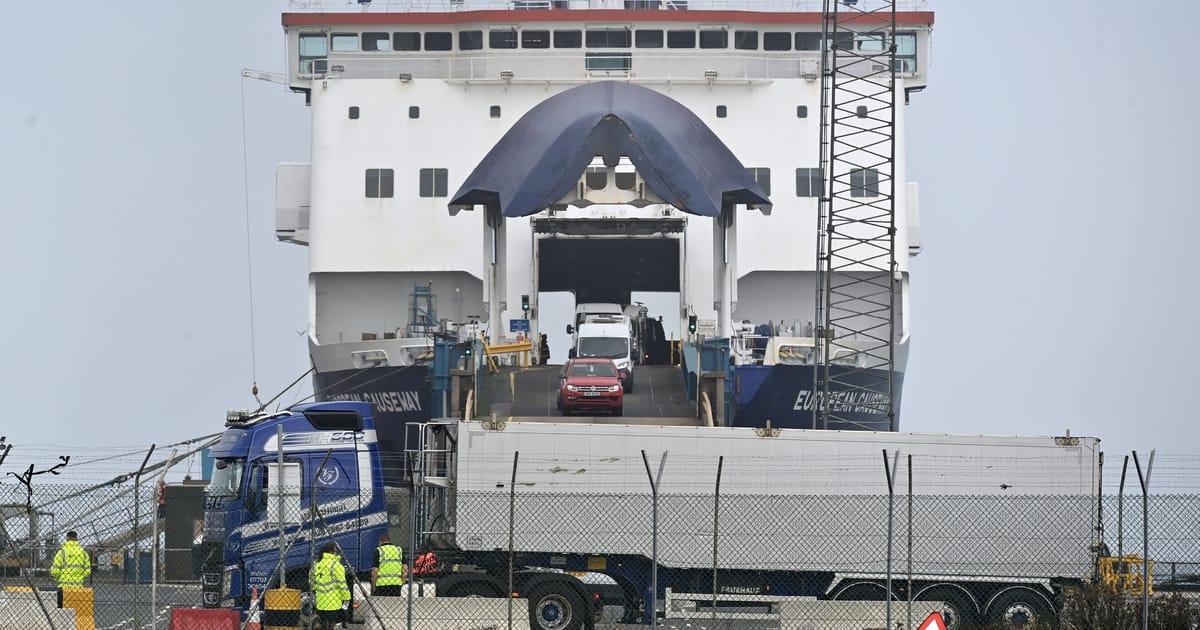The U.K. and EU are planning separate systems to tax carbon-heavy imports, prompting familiar fears about the impact in Northern Ireland.
In 2019, Boris Johnson promised his Brexit deal would do away with checks on the Northern Irish border. Five years later, the region is about to be whacked with yet another trade headache.
The latest tension comes from net zero rules, with the U.K. and EU preparing separate schemes on either side of the border to tax climate-damaging imports.
Britain’s proposals on high-carbon imports don’t kick in for at least a year after the EU’s start — leaving Northern Ireland, and its half-in half-out status, at risk of getting caught in the middle of yet another Brexit-driven political row.
Experts say the latest dispute will hike business costs and threaten jobs in the region, and could reopen arguments about laws separating Northern Ireland from the rest of the U.K.



This is the best summary I could come up with:
Britain’s proposals on high-carbon imports don’t kick in for at least a year after the EU’s start — leaving Northern Ireland, and its half-in half-out status, at risk of getting caught in the middle of yet another Brexit-driven political row.
It would also require fresh talks between EU and U.K. negotiating teams — as would linking the ETS, which would need to be thrashed out and added to the Windsor Framework, the deal brokered by prime minister Rishi Sunak to set out the trade playing field for Northern Ireland.
EU officials take the view that the bloc’s CBAM should apply to Northern Ireland, one person familiar with decision-making in London and Brussels, granted anonymity to speak candidly about the policy, told POLITICO.
On the plus side, there has been a “softening of the mood” towards linking systems, and a sense of “renewed goodwill” between Brussels and Westminster as a result of the Windsor Framework negotiations and the global energy crisis, said Berman.
The Department for Energy Security and Net Zero is pushing for linking emissions systems on the same terms as Switzerland, they said, but responsibility ultimately rests with the Treasury — where there has been more resistance from ministers cautious about the U.K.’s ability to carve its own regulations post-Brexit.
A Labour spokesperson declined to comment on the specific situation on the Irish border, saying only that the party supported the introduction of a U.K. CBAM and would “scrutinize the government’s plans to implement it.”
The original article contains 1,261 words, the summary contains 246 words. Saved 80%. I’m a bot and I’m open source!